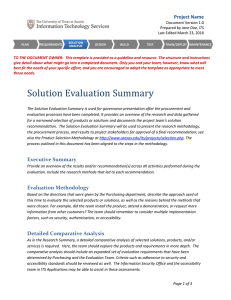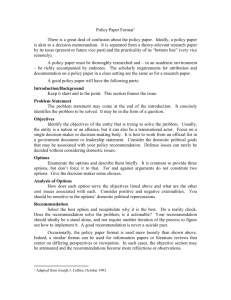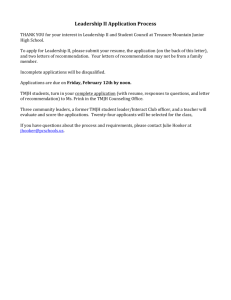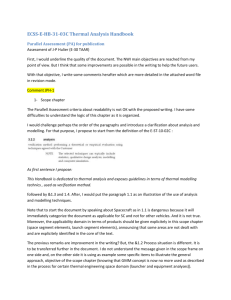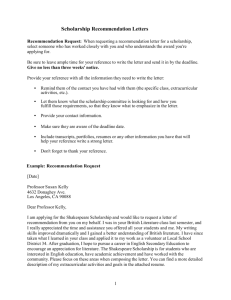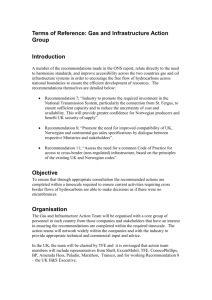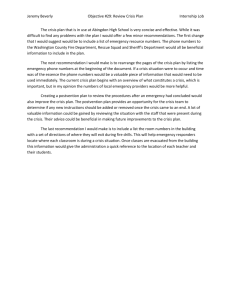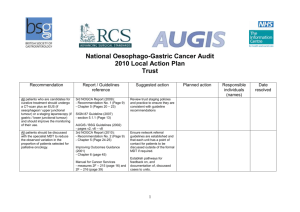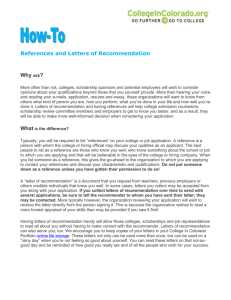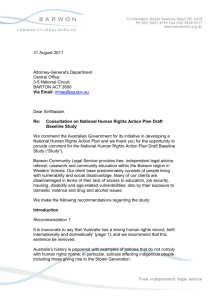Solution Evaluation Summary
advertisement
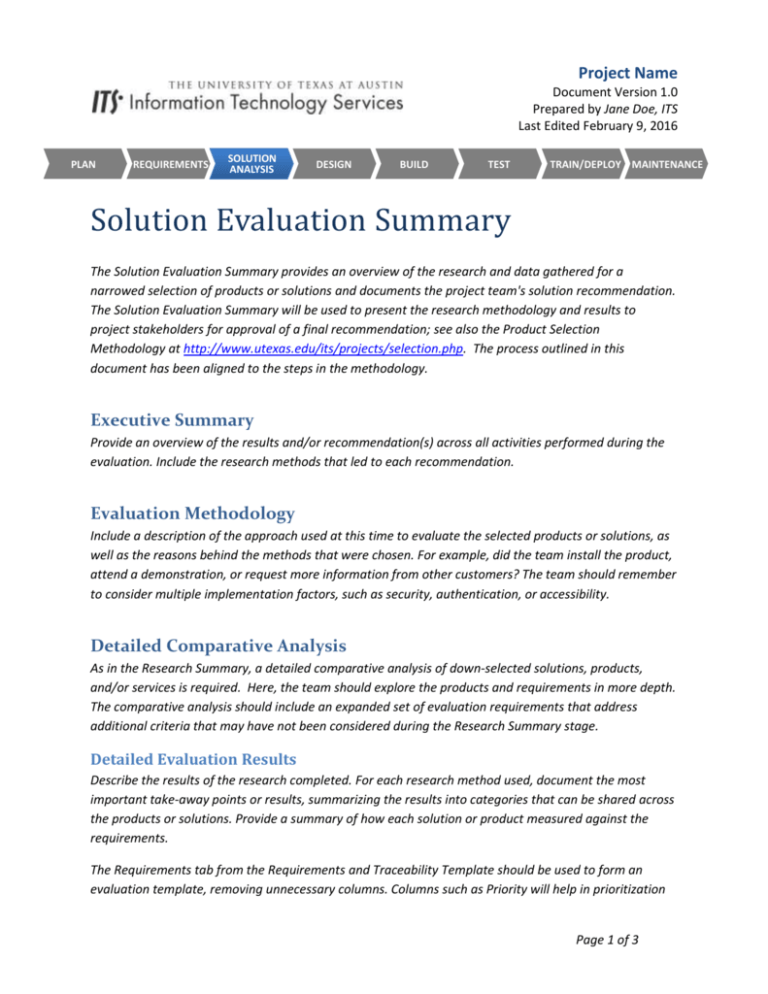
Project Name Document Version 1.0 Prepared by Jane Doe, ITS Last Edited February 9, 2016 PLAN REQUIREMENTS SOLUTION ANALYSIS DESIGN BUILD TEST TRAIN/DEPLOY MAINTENANCE Solution Evaluation Summary The Solution Evaluation Summary provides an overview of the research and data gathered for a narrowed selection of products or solutions and documents the project team's solution recommendation. The Solution Evaluation Summary will be used to present the research methodology and results to project stakeholders for approval of a final recommendation; see also the Product Selection Methodology at http://www.utexas.edu/its/projects/selection.php. The process outlined in this document has been aligned to the steps in the methodology. Executive Summary Provide an overview of the results and/or recommendation(s) across all activities performed during the evaluation. Include the research methods that led to each recommendation. Evaluation Methodology Include a description of the approach used at this time to evaluate the selected products or solutions, as well as the reasons behind the methods that were chosen. For example, did the team install the product, attend a demonstration, or request more information from other customers? The team should remember to consider multiple implementation factors, such as security, authentication, or accessibility. Detailed Comparative Analysis As in the Research Summary, a detailed comparative analysis of down-selected solutions, products, and/or services is required. Here, the team should explore the products and requirements in more depth. The comparative analysis should include an expanded set of evaluation requirements that address additional criteria that may have not been considered during the Research Summary stage. Detailed Evaluation Results Describe the results of the research completed. For each research method used, document the most important take-away points or results, summarizing the results into categories that can be shared across the products or solutions. Provide a summary of how each solution or product measured against the requirements. The Requirements tab from the Requirements and Traceability Template should be used to form an evaluation template, removing unnecessary columns. Columns such as Priority will help in prioritization Page 1 of 3 Project Name Document Version 1.0 and should remain as part of the evaluation. Additional columns should be added to capture how each product or solution meets, partially meets, or does not meet the requirements. Alternatively, there are other approaches that the team can use, such as using Harvey Balls (http://en.wikipedia.org/wiki/Harvey_Balls) to summarize the different levels of comparison. Evaluate Costs Develop an estimate of cost for the solution or product, including license, software maintenance/support, hardware, personnel, long-term maintenance, etc. A sample table is provided below. Implementation Cost (one time) Hardware/Hosting Software License Features/Enhancements Configuration/Customization Technical Support Training Estimated Total Implementation Costs Maintenance Cost (annually) Hardware/Hosting Software License Maintenance Technical Support Training Estimated Total Annual Costs Product 1 Product 2 $_,___ $_,___ $_,___ $_,___ $_,___ $_,___ $_,___ $_,___ $_,___ $_,___ $_,___ $_,___ $_,___ $_,___ $_,___ $_,___ $_,___ $_,___ $_,___ $_,___ $_,___ $_,___ $_,___ $_,___ $_,___ $_,___ Detailed Recommendation Document a detailed recommendation of the product or solution determined by the comparative analysis. Provide a summary of results found, including advantages and disadvantages of the recommended product or solution. For any alternatives to be considered if the primary recommendation is not available, also document details and criteria for selection over the primary recommendation. Risks Document all risks identified during the evaluation. An example risk could be that there is an inconsistent software release schedule or that accessibility testing was not completed during the evaluation. Appendix Include detailed research results as appropriate. This should include the Evaluation Requirements Matrix. Solution Evaluation Summary Page 2 of 3 Project Name Document Version 1.0 Revision History Version Date Updater Name V1 Solution Evaluation Summary Description Initial draft completed. Page 3 of 3
